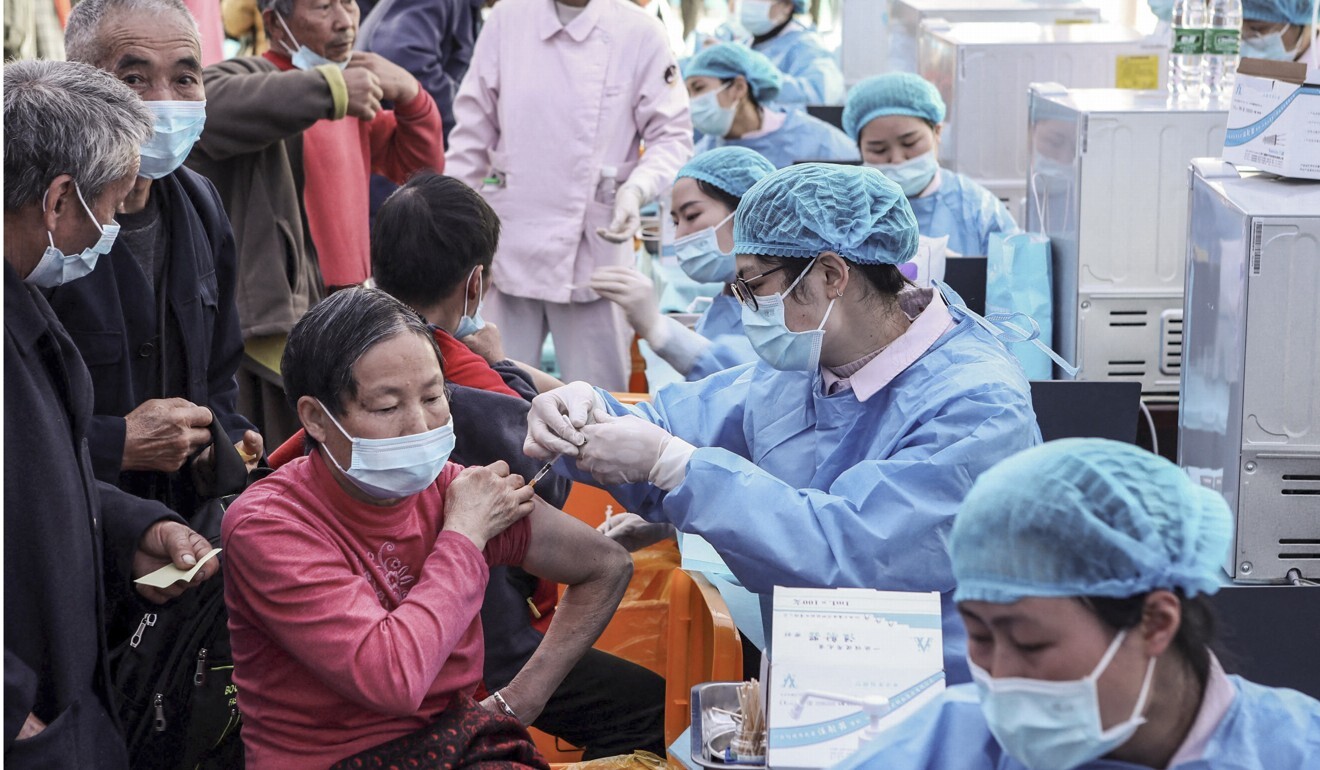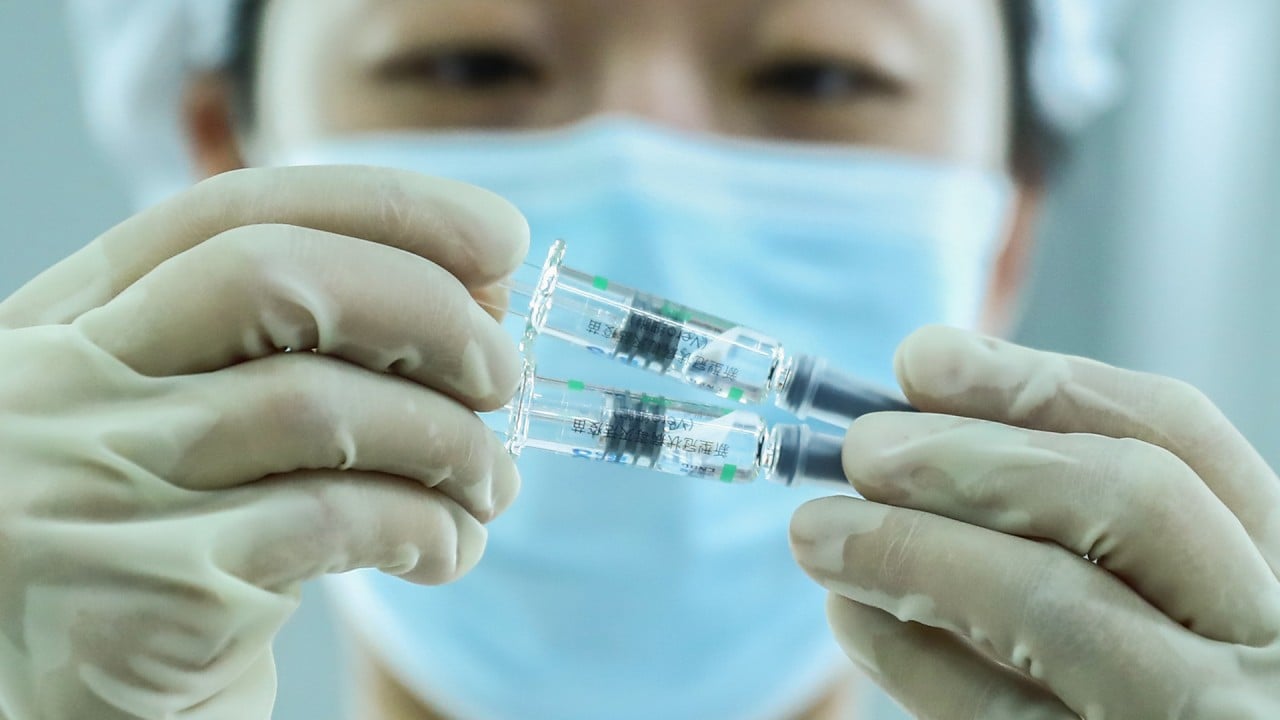
China could reach herd immunity against Covid-19 by end of year, Zhong Nanshan says
- Leading respiratory disease expert says more than 80 per cent of the population is expected to be fully vaccinated by then
- Zhong says booster shots could strengthen efficacy of vaccines, citing follow-up study on early stage Sinovac trials
“[At this stage] we believe a booster shot could strengthen the efficacy of the vaccines and we estimate more than 80 per cent of the population will be vaccinated by the end of this year. Therefore we hope that we will be able to achieve herd immunity [by then],” Zhong told a China-Arab states conference in the Ningxia Hui region via video link.
That forecast was based on data showing that Chinese vaccines had an average efficacy of around 70 per cent, he said.
Zhong also cited a follow-up study on Sinovac’s early stage clinical trials that found a twentyfold increase in neutralising antibody levels – indicating immune response – in people who were given a third dose of the Sinovac jab, nine months after their second. In elderly people it went up 30 times.

A study published last month, co-led by Sinovac, found that a third dose of the vaccine given six or more months after the second jab could boost the concentration of antibodies by three to five times. Antibody levels were found to have declined substantially six months after two doses were given, but the study concluded that a third dose resulted in a “strong boost in immune response”. The research has not been peer-reviewed and was posted on preprint server medRxiv.org.

02:01
China considers mixing Covid-19 vaccine types to boost effectiveness
Other countries are also looking at mixing vaccines. Last week, Turkish researchers said a study of more than 30 million inoculated people found that three doses of inactivated vaccines offered more protection than receiving an mRNA vaccine booster shot after two inactivated vaccine doses.
On Friday, Zhong again said that Chinese vaccines still offered protection against the Delta strain, though they were not as effective. He cited a small study in Guangzhou during a Delta outbreak earlier this year that found the Chinese vaccines were 59 per cent effective in preventing infection, and 70 per cent effective in preventing moderate cases. No serious cases were found among the 74 vaccinated people in the study.
On Wednesday, Zhang wrote on social media network Weibo that “we must hold on to the firm belief that the current pandemic coping strategy our country adopts is the most suitable for us by far”.

